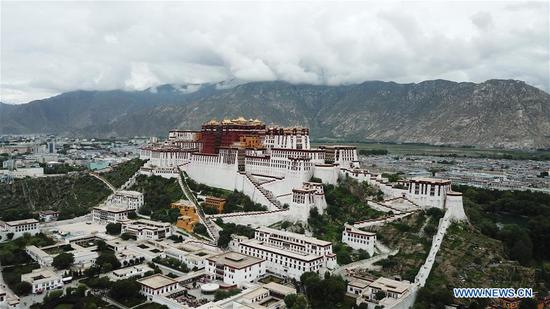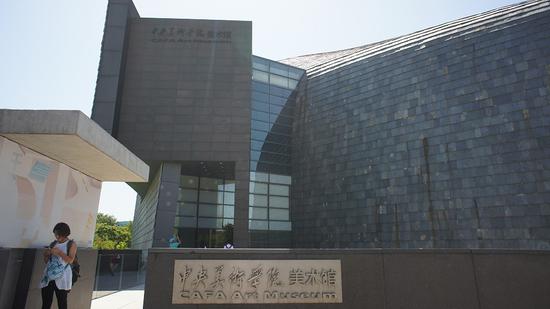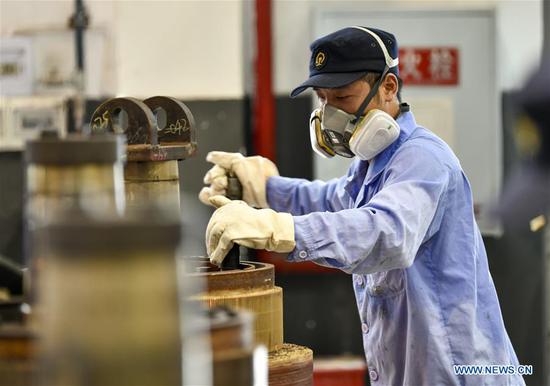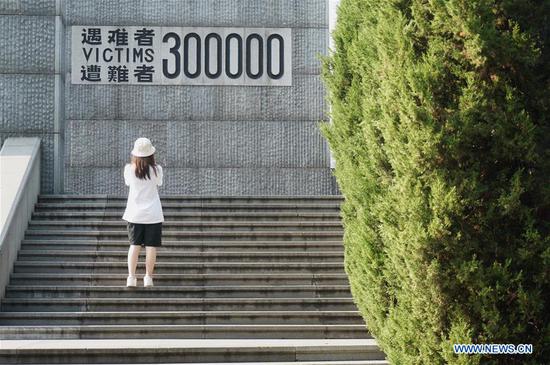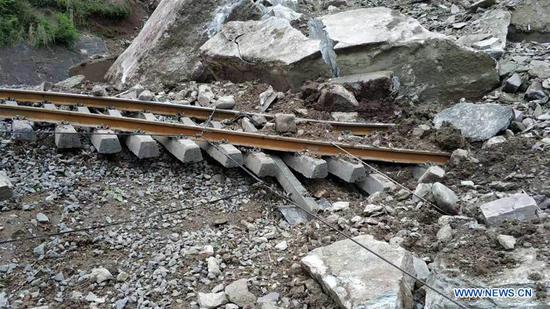With notable results in maintaining social stability, vocational education and training centers in China's Xinjiang have proved effective in fighting terrorism and extremism, deserving international recognition and support.
A white paper on Xinjiang's vocational education and training, released Friday by China's State Council Information Office, tells about the different aspects of the programs, responding to the so-called concerns harbored by some countries, organizations and figures.
For some time, Xinjiang, a key battlefield in the fight against terrorism in China, has been plagued by terrorism and religious extremism, victimizing innocent civilians and police.
It is absolutely just and lawful for Xinjiang to carry out the anti-terrorism and deradicalization efforts to ensure long-term stability and prosperity and protect people's rights to life, health and development. Terrorism and extremism must be addressed so as not to ruin the considerable development achievements of Xinjiang since its peaceful liberation in 1949.
Drawing experience from other countries and taking into consideration the local conditions, the education and training institutions in Xinjiang provide trainees with courses including standard Chinese, law, vocational skills and deradicalization. The measures tackle both the symptoms and root causes while fully respecting and protecting human rights in line with law and international practice.
These programs have delivered worthwhile results. No terrorist incidents have occurred in Xinjiang for nearly three years since the education and training started. Local people have gained a strong sense of security and happiness. The region has attracted a soaring number of tourists, with nearly 76 million in the first half of 2019, up 46 percent year on year.
Having acquired skills and better communication abilities, most trainees have graduated from the centers. Many of them have found jobs and resumed good relations with family members, friends and neighbors, thanks to the removal of their extremist ideas which used to isolate them and prompted them to commit illegal acts.
Indeed, Xinjiang deserves praise for its measures in the fight against terrorism and extremism -- undoubtedly part of the global struggle against such common enemies of humanity. With results already, Xinjiang's education and training ensures its own social stability and is conducive to regional security and stability. The programs have contributed experience to international actions against terrorism and extremism.
This reality has been seen first-hand by international journalists and diplomats from different countries who visited Xinjiang, which is doing the right thing and fears no publicity provided the visitors adopt an objective and unbiased stance.
Yet, some people, with ideological prejudice or ulterior motives, are doing all they can to slander the reputation of Xinjiang. They must set aside their double standards and prejudices, and stop spreading sheer lies, rumors and distortions on Xinjiang or attempting to use Xinjiang as a pawn to contain China's development.
Otherwise, they are doomed to exposure and failure, as a just cause for humanity always stands the test of time.









